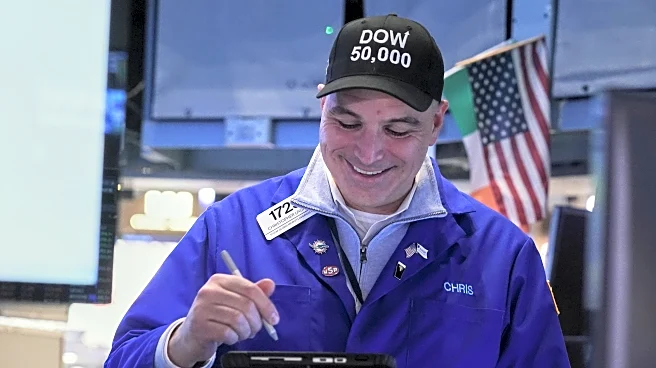What's Happening?
EU environment ministers faced a significant delay in approving the bloc's joint negotiating position for the upcoming COP30 climate summit due to opposition from Greece. The contention arose over a reference
to the International Maritime Organization (IMO) agreement, which Greece opposed. The IMO agreement is recognized as the first legally binding global sectoral climate regulation aimed at reducing emissions from shipping. Despite several attempts at compromise, including a proposal to merely acknowledge the IMO negotiations, Greece maintained its veto, leading to the eventual removal of the IMO reference from the text. This development comes amid broader tensions, as President Trump has threatened sanctions against countries supporting a tax on climate pollution from shipping.
Why It's Important?
The disagreement highlights the challenges of achieving consensus on climate policies within the EU, especially when individual member states have conflicting interests. Greece's opposition underscores the complexities of balancing national interests with collective environmental goals. The situation also reflects the broader geopolitical tensions, as President Trump's stance on climate policies influences international negotiations. The outcome of these discussions could impact global shipping regulations and the EU's ability to present a unified front at COP30, potentially affecting international climate agreements and the shipping industry's regulatory landscape.
What's Next?
The removal of the IMO reference from the EU's COP30 negotiating position may lead to further diplomatic efforts to reconcile differences among member states. The EU will need to navigate these internal divisions to maintain its leadership role in global climate negotiations. Additionally, the potential for U.S. sanctions could influence the positions of other countries involved in the IMO discussions, possibly affecting future climate policy developments. Stakeholders in the shipping industry and environmental advocacy groups will likely monitor these developments closely, as they could have significant implications for emissions regulations and international trade.










